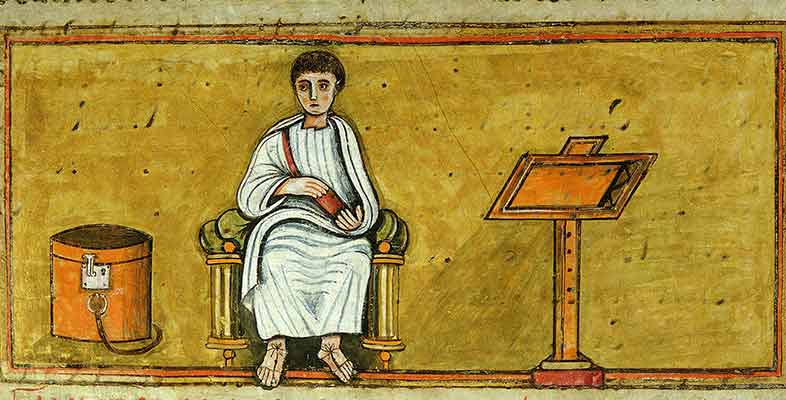4.3.2 Subject and object
Sometimes a sentence also contains a noun (or pronoun), indicating to whom or what the action is being done. In the sentence, ‘ The referee blew his whistle’, the subject is ‘ the referee’, the verb is ‘ blew’, and ‘ his whistle’ is the thing to which the action is done. This ‘receiver’ of the action is called the ‘object’ of the verb. Another way to think of this is to ask a question of the subject and verb; for example, ‘The referee blew – what?’ The answer to the question, ‘his whistle’, is the object.
Two of the sentences in Activity 9 above also have objects: ‘I like chocolate ’ and ‘Chris and Robbie climbed the tree ’.
Activity 10
Identify the subject, verb and object in the following sentences. Type your answers in the box provided.
- The dog fetched the ball.
- The girls were quietly reading their books.
- We don’t like hard work.
- In 60 ce Boudicca destroyed Colchester, London and St Albans.
- The Romans could not forgive her.
- People will be watching you.
Answer
| Subject | Verb | Object |
|---|---|---|
| The dog | fetched | the ball |
| The girls | were reading | their books |
| We | do + like | hard work |
| Boudicca | destroyed | Colchester, London, St Albans |
| The Romans | could + forgive | her |
| People | will be watching | you |
As you can see from the examples in Activity 10, in English the subject usually comes before the verb and the object after it, so the order of components is subject–verb–object (sometimes shortened to SVO). This is not always so, however: the object may come first in English, perhaps for the sake of emphasis. And so it is possible to say:
Hard work we don’t like.
Similarly, the verb can sometimes come before the subject in English:
‘Get lost!’ shouted the man angrily.
